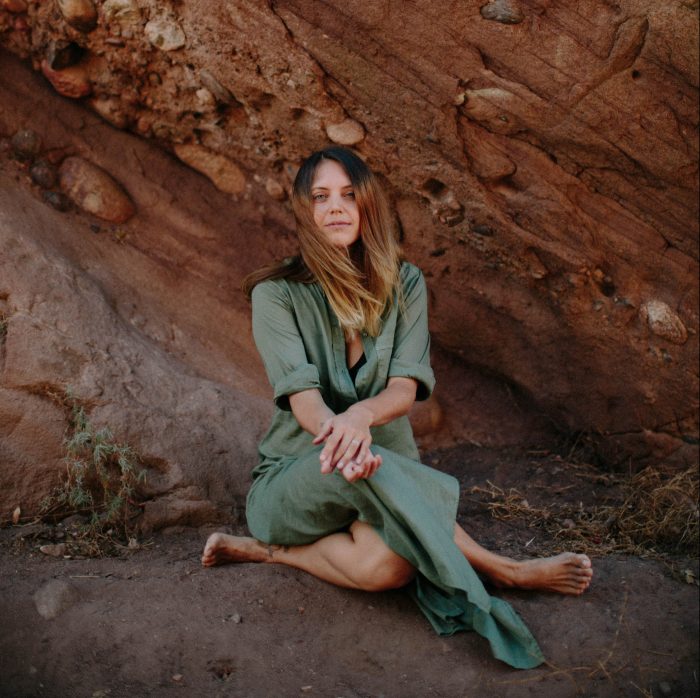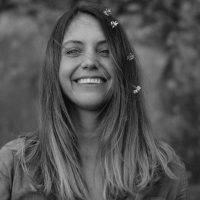A woman I work with turned to me recently and said, “Your greatest obstacle with your work is being a white woman, and my greatest obstacle with my work is not being a white woman.”
This sentence summarizes the contradiction and inner conflict I feel every day. I am a white woman who directs research and leads events with indigenous women.
We bring awareness and celebrate cultural traditions solely from the feminine perspective. Indigenous women have long been dismissed, and not deemed important by our society. We do not include their perspective and experiences as part of our schooling and media.
Yet, the ancestral wisdom they hold is profound, and they have knowledge to impart with us. My work is to include them in our understanding of the world.
By working with Maria and Micaela in Guatemala, and Jaba Teresa and Milena in Colombia, I have been fortunate enough to develop long-term connections and friendships. Along with women such as Gabriela Del Mar in Colombia who works directly, and nearby, to Jaba and Milena.
Their friendship is my guiding compass—to know that I am walking rightly.
These women would not hesitate to tell me if I stepped off mark. This is the important voice of elders who uphold truth and integrity that I look to in my life.
Regardless, back in my own society, I feel the criticism for holding the torch as a researcher and protector of indigenous traditions simply because of the color of my skin. There are assumptions that being white is doing wrong.
There are, of course, many ways it can go wrong, so we need to stay open to learning on the path. People of all colors can create more harm than good. We need to all be part of this conversation.
And, this work is more important than my own fragility around fear of criticism. This work still needs to happen.
White people, and many others, are afraid to go close to, and learn directly from, indigenous cultures in case it comes across as doing the “wrong” thing—but we can’t heal the world if we don’t overcome this fear. We may still step in a way that is slightly wrong or not politically correct, but at least then we are stepping and trying.
Part of my work is then having empathy for not always doing the “right” thing, and opening up the conversation to what walking rightly looks like.
I am a Welsh, white woman, born in Europe, and I did not grow up in the water of the communities I work with. I grew up largely ignorant to the perspectives and experiences of these people. Sometimes, doing my work means wading in ancestral triggers and the pain body from years of white people suppressing indigenous ways of life.
There is inherent guilt from what those with my color skin have done and what we are still doing today. However, I’ve learnt that guilt is not useful to this work. Unless the guilt pushes me to look deeper within, and also makes me look at how I am still complicit by living in this society.
I have to work through the guilt to truly show up and make wise choices.
Jaba Teresa, a Kogi seeress, native to Sierra Nevada de Santa Marta, spoke to me directly at the end of our last gathering event in Colombia. She said that to do this work, I cannot carry the guilt of others.
Some women had just been crying, and felt confused by their own experiences and expectations. They had personal criticisms.
Jaba spoke affirmatively, “We all have our own work to do.”
We all need to do the work to unpack our personal guilt, shame, and judgements. This, instead of calling out others based on the color of their skin. This, instead of throwing around criticism to avoid looking within. This is part of my work to help guide the conversation of how to walk rightly, without adding blame and shame that prevents us all from evolving.
Wouldn’t it be best for indigenous women, from each culture, to tell their own stories to the “mainstream” collective? Wouldn’t it be best for us to understand the complex narratives throughout time through their voices, not mine?
Should I be one of the women carrying this torch?
Jaba Teresa is just one woman who has a message to share with the world, and she does not want to be the face of it. She wants messengers and spokeswomen, so that the change will still happen.
I have the privilege to share that message, and the message from many other women. I have been given permission, as long as I follow their guidance and continue to do my own personal and spiritual work.
I have a platform to share from and privileges to utilize. I am one white woman carrying the torch of awareness. I will continue to hold space for these women to share their messages, even when it puts me in uncomfortable situations, vulnerable to criticism and attack.
They have a voice, and I am just a translator.
As a white woman, I am able to build a bridge of understanding, and I can use my privilege to do so. It can still be terrifying to offer a bridge of knowledge to traditions that I am not a part of, yet am working every day to protect.
However, being a part of creating the change is more important than my fear and fragility around being white, and how I am perceived because of it.
The change still needs to happen.
~







Read 28 comments and reply